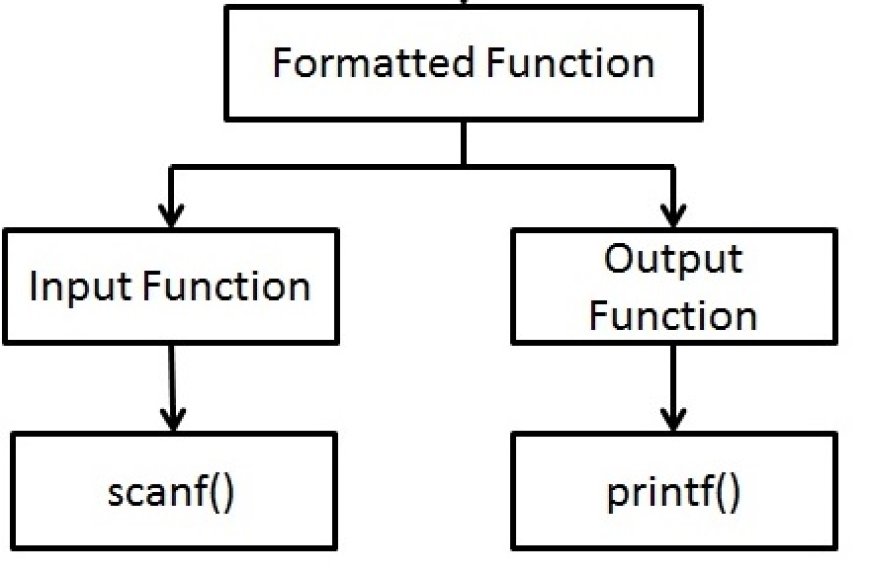Input and Output in C
Input and output operations in C are the processes of taking data from external sources (input) and sending data to external destinations (output).

Input and Output (I/O) operations are fundamental to any programming language, including C. This tutorial will provide a comprehensive overview of input and output in C, covering various functions, standard streams, and examples to illustrate their use.
1. Introduction to Input and Output in C
Input and output operations in C are the processes of taking data from external sources (input) and sending data to external destinations (output). These operations are essential for interacting with users, reading from files, and displaying results.
2. Standard Streams in C
In C, input and output are facilitated through standard streams:
stdin(Standard Input): Represents the source of input data, usually the keyboard.stdout(Standard Output): Represents the destination for normal program output, usually the console.stderr(Standard Error): Represents the destination for error messages, also typically the console.
3. Reading Input in C
Reading Characters
To read a single character from the standard input (keyboard), you can use the getchar() function:
#include <stdio.h>
int main() {
char ch;
printf("Enter a character: ");
ch = getchar();
printf("You entered: %c\n", ch);
return 0;
}
Reading Strings
To read a string (a sequence of characters) from the standard input, you can use the scanf() function with the %s format specifier:
#include <stdio.h>
int main() {
char name[50];
printf("Enter your name: ");
scanf("%s", name);
printf("Hello, %s!\n", name);
return 0;
}
4. Writing Output in C
Writing Characters
To display a character on the standard output, you can use the putchar() function:
#include <stdio.h>
int main() {
char ch = 'A';
putchar(ch);
return 0;
}
Writing Strings
To display a string on the standard output, you can use the printf() function:
#include <stdio.h>
int main() {
char greeting[] = "Hello, World!";
printf("%s\n", greeting);
return 0;
}
5. Formatted Input and Output
The printf() and scanf() functions support formatted input and output. You can use format specifiers to control how data is displayed and read. Some common format specifiers include %d for integers, %f for floating-point numbers, %s for strings, and %c for characters.
#include <stdio.h>
int main() {
int num = 42;
float pi = 3.141592;
char letter = 'A';
printf("Integer: %d\n", num);
printf("Float: %.2f\n", pi);
printf("Character: %c\n", letter);
return 0;
}
6. File Input and Output
C provides functions for reading from and writing to files. To open a file for reading or writing, you can use fopen(). To read from a file, use fscanf() or fgets(). To write to a file, use fprintf() or fputs(). Don't forget to close the file using fclose() when you're done.
#include <stdio.h>
int main() {
FILE *file;
char text[] = "Hello, File I/O!\n";
// Open the file for writing
file = fopen("output.txt", "w");
if (file == NULL) {
printf("Failed to open the file.\n");
return 1;
}
// Write to the file
fprintf(file, "%s", text);
// Close the file
fclose(file);
return 0;
}
7. Error Handling
Error handling is crucial when dealing with I/O operations. Always check for errors after opening or closing files, and handle them appropriately.
#include <stdio.h>
int main() {
FILE *file;
file = fopen("nonexistent_file.txt", "r");
if (file == NULL) {
perror("Error opening the file");
return 1;
}
// File operations...
fclose(file);
return 0;
}
8. Example Programs
Let's explore some complete example programs to illustrate input and output operations:
Example 1: Reading and Displaying User Input
#include <stdio.h>
int main() {
char name[50];
printf("Enter your name: ");
scanf("%s", name);
printf("Hello, %s!\n", name);
return 0;
}
In this example, we read a name from the user and display a personalized greeting.
Example 2: Reading and Writing to a File
#include <stdio.h>
int main() {
FILE *file;
char text[100];
// Open the file for writing
file = fopen("output.txt", "w");
if (file == NULL) {
perror("Error opening the file");
return 1;
}
printf("Enter text to write to the file: ");
scanf("%s", text);
// Write to the file
fprintf(file, "%s", text);
// Close the file
fclose(file);
printf("Data written to the file successfully!\n");
return 0;
}
In this example, we read user input and write it to a file named "output.txt."
Input and output operations are essential in C programming, allowing you to interact with users, read from and write to files, and handle data in various formats. Understanding the use of standard streams, format specifiers, and error handling is crucial for effective I/O operations in C.

 HSingh
HSingh